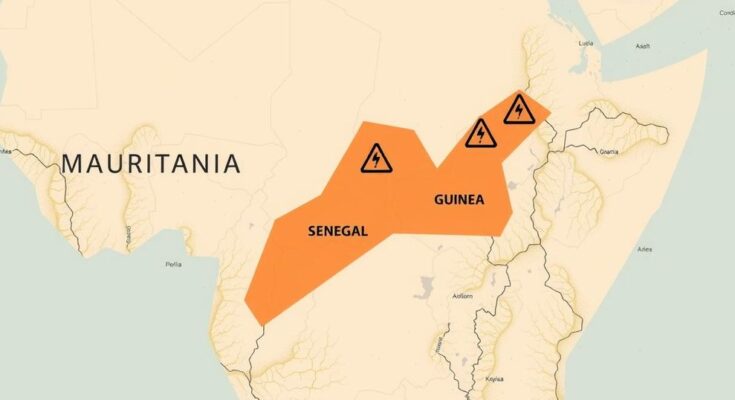The deteriorating security situation in Mali has drastically impacted Mauritania, Senegal, and Guinea’s border areas. REACH reports high percentages of affected localities due to violence, looting, and economic shocks. Displacement has also been reported, with significant portions of local populations fleeing certain localities, highlighting an urgent humanitarian crisis.
The security situation in Mali has significantly deteriorated, impacting the border regions of Mauritania, Senegal, and Guinea. According to REACH’s Humanitarian Situation Monitoring, from July to October 2024, 97 percent of assessed localities in Tombouctou and 73 percent in Ségou experienced various shocks related to insecurity, violence, or looting. In the Goundam and Gourma-Rharous circles of Tombouctou, 100 percent of surveyed localities reported such impacts. Furthermore, in the Niafunké circle at the border with Mauritania, 97 percent of localities were similarly affected.
The reports indicate that flooding also exacerbated the situation, affecting 72 percent of localities in Tombouctou and 62 percent in Ségou. Additionally, a rapid increase in market prices impacted 58 percent of localities in Tombouctou and 43 percent in Ségou. These shocks contribute to the overall insecurity in the region and pose significant challenges for local populations.
Displacement has been a notable consequence of the increasing violence, with key informants indicating that 34 percent of localities in Tombouctou and 23 percent in Ségou reported population displacement. Although these movements were generally contained within the same region and typically did not exceed 25 percent of a locality’s population, some areas exhibited more severe impacts. Specifically, in 24 percent of localities in Ségou, the proportion of people displaced was estimated to exceed 50 percent. This highlights the urgent need for support and intervention in these vulnerable areas.
The deteriorating security situation in Mali has had dire consequences for its border regions, particularly affecting localities in Tombouctou and Ségou. The high percentage of affected areas indicates a need for urgent humanitarian assistance as individuals face displacement and economic challenges. The situation underscores the interconnectedness of security and humanitarian issues in the Central Sahel, necessitating targeted responses to alleviate the suffering of the affected populations.
Original Source: www.unocha.org




